The Health Technology Podcast
Join the UCSF Rosenman Institute as we sit down with the most inspiring innovators in the healthtech industry. Our guests are creating technologies that save and improve patients’ lives. Listen in as they share their journeys, career insights, and invaluable lessons learned. Be inspired by the best and brightest in healthtech as they discuss their contributions to the future of healthcare.
Join the UCSF Rosenman Institute as we sit down with the most inspiring innovators in the healthtech industry. Our guests are creating technologies that save and improve patients’ lives. Listen in as they share their journeys, career insights, and invaluable lessons learned. Be inspired by the best and brightest in healthtech as they discuss their contributions to the future of healthcare.
Episodes

Tuesday Aug 05, 2025
The Hidden Workforce That Keeps Healthcare Running with Dr. Sunita Mutha
Tuesday Aug 05, 2025
Tuesday Aug 05, 2025
Healthcare is a team effort, but we don’t always see the full team. Behind every physician visit, every hospital discharge, and every community clinic, there’s a vast, often invisible network of professionals keeping the system running.
In this episode, we sit down with Dr. Sunita Mutha, Director of the Healthforce Center and Professor of Medicine at UCSF, to talk about these hidden threads holding our healthcare system together. She shines a light on the vital roles played by medical assistants, patient navigators, community health workers, and clinic leaders—roles that are essential, yet too often overlooked.
Dr. Mutha walks us through the Healthforce Center’s mission to strengthen this workforce, from building lasting leadership programs that ripple across organizations, to fostering statewide collaborations, to producing data-driven insights that inform policy at every level.
We also dive deep into the realities of burnout—why it’s not just about overwork, but about the erosion of meaning in the work itself. Dr. Mutha reframes burnout as a structural failure, not a personal shortcoming, and shares practical ways to design systems that support the people who make care possible.
This is an honest, inspiring look at the human infrastructure of healthcare—what it takes to sustain it, and why investing in people is the key to a more equitable and resilient system.
Do you have thoughts on this episode or ideas for future guests? We’d love to hear from you. Email us at hello@rosenmaninstitute.org.

Monday Jul 28, 2025
Dignity, Death & the End of Life Option Act
Monday Jul 28, 2025
Monday Jul 28, 2025
What does it mean to provide care when medicine can no longer cure? In this episode, UCSF palliative care physician Dr. Brieze Bell shares her journey from professional dancer to integrative medicine leader, and how those seemingly unrelated paths came together in a life devoted to service, presence, and healing at the edge of life.
Dr. Bell reflects on the principle of non-abandonment, the emotional complexity of medical aid in dying, and her role leading UCSF’s End of Life Option Act program. She describes the system's work behind transforming this sensitive process into a compassionate, accessible, and legally sound experience for patients and families. Alongside deeply personal stories—including the death of her mother and a heartfelt posthumous letter from a patient—Dr. Bell reminds us that showing up for someone in their most vulnerable moment can change everything.
This conversation is essential listening for clinicians, caregivers, and anyone contemplating the ethics and emotions surrounding end-of-life care. Listen in as Christine Winoto, director of the UCSF Rosenman Institute, explores the dignity, discomfort, and transformative grace that define this powerful chapter of healthcare.
Tune in to hear what it truly means to be a companion at the end of life.
Do you have thoughts on this episode or ideas for future guests? We’d love to hear from you.
Email us at hello@rosenmaninstitute.org.
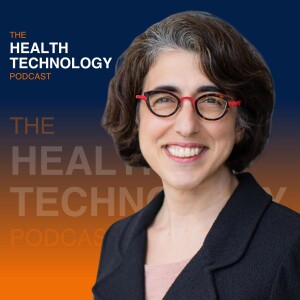
Monday Jul 21, 2025
Curing Genetic Disease Before Life Begins with Tippi MacKenzie
Monday Jul 21, 2025
Monday Jul 21, 2025
What if we could cure genetic disease before a baby is even born? In this episode, pediatric and fetal surgeon Tippi MacKenzie shares how in utero gene therapy and stem cell transplants could stop devastating diseases before life begins.
Dr. MacKenzie is a pioneer in fetal genome surgery and in utero stem cell therapy, with a mission to give every child a healthy start. As Director of the UCSF Broad Stem Cell Center, she leads groundbreaking clinical trials treating disorders like alpha thalassemia while pushing the boundaries of what’s possible in regenerative medicine.
She also opens up about her personal journey—from Juilliard-trained pianist to surgeon-scientist—and the New England Journal of Medicine article that changed the course of her career.
We discuss the unique biology of the fetus, why fetal immune tolerance presents a once-in-a-lifetime treatment window, and how her team is using lipid nanoparticles to develop future-ready gene editing strategies. We also explore how to better support the next generation of clinician-scientists and why stronger partnerships between academia and industry are key to bringing therapies from lab to patient.
Do you have thoughts on this episode or ideas for future guests? We’d love to hear from you.Email us at hello@rosenmaninstitute.org.
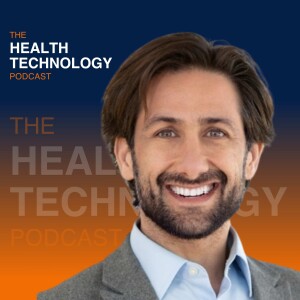
Monday Jun 30, 2025
Making Healthcare Human Again, with Troy Tazbaz
Monday Jun 30, 2025
Monday Jun 30, 2025
Troy Tazbaz, currently Senior Vice President of Corporate Strategy & Operations at Oracle and formerly Director of Digital Health at the FDA, has a powerful vision: making healthcare human again digitally. Driven by a profound personal experience supporting his wife through complex medical decisions during her battle with cancer, Troy recognized the deep inefficiencies and overwhelming demands placed on patients and caregivers. His journey inspired him to challenge the status quo, transitioning from a corporate technology career into healthcare innovation.
In this deeply personal and insightful episode, Troy discusses key moments that fueled his commitment to humanizing healthcare. He vividly describes the confusion at his wife's bedside, questioning drug interactions, and navigating complicated medical decisions. As Director of Digital Health at the FDA, Troy spearheaded efforts to integrate digital technologies into healthcare responsibly, establishing frameworks that ensure AI and other digital medical tools remain safe and effective.
Now back at Oracle, Troy continues his mission of transforming healthcare by shaping corporate strategies and operations that support impactful technological solutions. He emphasizes why slowing down to implement digital innovation thoughtfully is essential, and how human-centered design can restore compassion and simplicity to healthcare delivery.
Beyond his professional roles, Troy shares powerful reflections on personal resilience and insights gained from cycling across America—an experience highlighting the importance of slowing down to appreciate life's subtle beauty.
Join us for this compelling conversation hosted by Christine Winoto of the UCSF Rosenman Institute, as we explore how digital tools can genuinely serve patients and caregivers, returning humanity to the core of healthcare.
Do you have thoughts on this episode or ideas for future guests? We’d love to hear from you.Email us at hello@rosenmaninstitute.org.
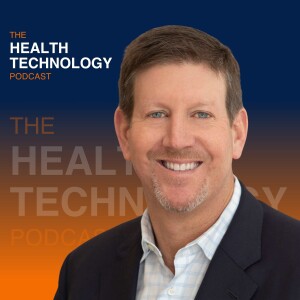
Monday Jun 23, 2025
What Every Healthcare Leader Should Know, with Dr. Todd Brinton
Monday Jun 23, 2025
Monday Jun 23, 2025
What every healthcare leader should know is at the heart of this episode featuring Dr. Todd Brinton, Chief Scientific Officer at Edwards Lifesciences and a leading figure in medtech innovation. Dr. Brinton’s journey began in a sixth-grade classroom, where a fascination with the heart sparked a lifelong passion for both medicine and technology. That early curiosity led him to pursue engineering, medicine, and eventually leadership in heart health.
Before becoming a recognized leader, Dr. Brinton faced the same questions many young professionals do—wondering if he belonged, and whether he could move from engineering into medicine. Throughout his career, mentors played a crucial role in helping him find his potential, and setbacks became opportunities for growth. These experiences shaped his approach to leadership, resilience, and innovation in healthcare.
Dr. Brinton discusses lessons learned from building teams, founding companies like Shockwave Medical and BioParadox, and making difficult choices as both a physician and entrepreneur. He shares why honesty and kindness matter in leadership, how to create meaningful mentor relationships, and what it really takes to move ideas from the clinic to the corporate world. The conversation covers why embracing mistakes is essential for progress, why people—not just technology—will define the future of health innovation, and advice for those building their own path in healthcare.
Whether you’re leading a startup, managing a hospital team, or just starting your career, Dr. Brinton’s story offers practical insight for every stage. Hear directly from Dr. Todd Brinton as he joins Christine Winoto for a candid discussion about career pivots, mentorship, and the realities of healthcare leadership, brought to you by the UCSF Rosenman Institute.
For more on healthcare innovation, check out What 2 Billion Data Points Can Tell Us: James Mault on Smarter Care.
Do you have thoughts on this episode or ideas for future guests? We’d love to hear from you.Email us at hello@rosenmaninstitute.org.

Monday Jun 16, 2025
Covered California: Jessica Altman on Access, Equity & Affordability
Monday Jun 16, 2025
Monday Jun 16, 2025
Covered California is leading the way in making healthcare more accessible and equitable. Under the leadership of Executive Director Jessica Altman, the state’s health insurance marketplace has reached nearly 2 million enrollees, setting new records for affordable health coverage in California. In this episode, Jessica dives into how Covered California’s innovative outreach, tailored language support, and affordability programs are closing the coverage gap, especially for freelancers, gig workers, and families who often fall through the cracks.
Jessica draws on her roots in healthcare policy, shaped by family and her work at the US Department of Health and Human Services, to explain why insurance is so complex and how California’s unique blend of state and federal policy makes a real-world difference. We discuss why the “last mile” to coverage is often the hardest, how creative partnerships with community organizations break down language and cultural barriers, and why affordability remains the foundation of any successful health insurance system.
This episode also tackles the impact of the Affordable Care Act, the pros and cons of state vs. federal insurance regulation, and what other states can learn from California’s investments in outreach, Medi-Cal expansion, and targeted subsidies. Jessica shares real examples of how public opinion around coverage is shifting as families experience the benefits firsthand, and why Covered California’s commitment to customer service is rebuilding trust in a system long seen as confusing and impersonal.
Join us for this compelling conversation hosted by Christine Winoto of the UCSF Rosenman Institute.
Do you have thoughts on this episode or ideas for future guests? We’d love to hear from you.Email us at hello@rosenmaninstitute.org.
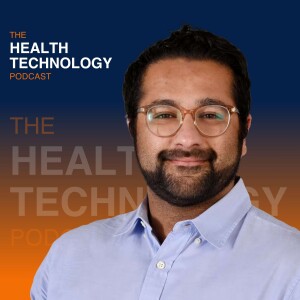
Monday Jun 09, 2025
Every Second Counts: Cardiac Arrest Prevention Innovation with Sameer Jafri
Monday Jun 09, 2025
Monday Jun 09, 2025
Cardiac arrest remains one of the leading causes of death worldwide, striking without warning and demanding urgent emergency response. In this episode of The Health Technology Podcast, we spotlight cardiac arrest prevention, portable defibrillator innovation, and next-generation AED technology featuring Sameer Jafri, CEO and co-founder of Avive Solutions.
From his early days volunteering at cardiac screenings to founding a nonprofit focused on heart health at UCLA, Sameer’s dedication to life-saving innovation has always been personal. With Avive Solutions, he is pioneering the development of connected, portable AEDs, making advanced emergency response accessible in homes, schools, sports fields, and public spaces everywhere.
Sameer shares how Avive’s smart defibrillator ecosystem is changing outcomes by bridging the gap between bystanders and medical professionals. By integrating real-time data and rapid response capabilities, Avive’s technology empowers communities to act decisively and improve cardiac arrest survival rates.
Whether you’re a healthcare innovator, a clinician, or someone passionate about medical technology, this episode reveals what it takes to challenge the status quo in cardiac care. Tune in to hear how Sameer Jafri is transforming the future of emergency medicine through connected devices, better access, and relentless advocacy for cardiac arrest prevention.
Do you have thoughts on this episode or ideas for future guests? We’d love to hear from you.
Email us at hello@rosenmaninstitute.org.
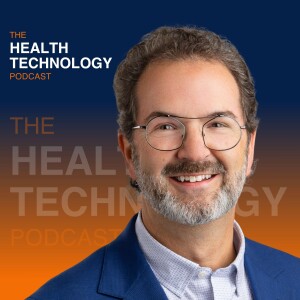
Monday Jun 02, 2025
What 2 Billion Data Points Can Tell Us: James Mault on Smarter Care
Monday Jun 02, 2025
Monday Jun 02, 2025
What happens when a heart surgeon sees too many patients discharged too soon, with no clear way to monitor their recovery? For Dr. James Mault, MD, it sparked a 25-year journey to reshape the future of healthcare. From operating rooms in Denver to boardrooms at Microsoft and Qualcomm, James’s mission has remained the same: bridge the gap between hospital care and home through continuous, remote patient monitoring.
Today, as Founder and Executive Chairman of BioIntelliSense, James is pioneering wearable technology that tracks vital signs in real-time, empowering clinicians and families to catch warning signs early, before they become emergencies. With over 80 patents, multiple startup exits, and leadership roles at major tech companies, his career blends deep clinical expertise with bold innovation.
James shares his remarkable path from aspiring astronaut to serial healthcare entrepreneur. We explore the origin of his passion, the turning points that shaped his career, and how his technology is already transforming care for hundreds of thousands of patients across the globe.
You’ll hear how James is scaling clinical insights through data, simplicity, and purpose, revealing what 2 billion data points can teach us about smarter, more human-centered care. Whether you're a founder, clinician, or caregiver, this episode offers a powerful look at how one surgeon’s mission is changing the way the world heals.
Do you have thoughts on this episode or ideas for future guests? We’d love to hear from you.
Email us at hello@rosenmaninstitute.org.
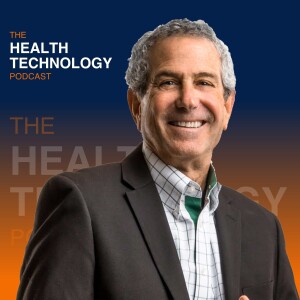
Monday May 05, 2025
What Dying Teaches Us About Living: Insights from Ira Byock
Monday May 05, 2025
Monday May 05, 2025
Picture a hospital room late at night, the soft hum of machines in the background. A family gathers quietly around their loved one, unsure how to navigate the complexities of end-of-life care. It’s a scene playing out every day across the country, highlighting a crucial yet often neglected part of healthcare—the way we care for people as their lives near an end.
Joining me today is Ira Byock, a renowned physician, author, and passionate advocate for palliative care, whose groundbreaking work has transformed how we think about living—and dying—well. As the Emeritus Professor of Medicine and Community & Family Medicine, Dartmouth Geisel School of Medicine, Ira has dedicated his career to ensuring that end-of-life care is compassionate, comprehensive, and patient-centered. From developing the influential Missoula Demonstration Project to leading the Robert Wood Johnson Foundation's initiatives on end-of-life care, Ira’s pioneering efforts have touched millions of lives.
Drawing deeply from his early experiences in rural family medicine, Ira witnessed firsthand the profound gaps in care for dying patients, sparking a lifelong mission to humanize healthcare. His belief that moments of crisis can also be opportunities for growth and wellbeing and reshaped our understanding of what it means to care for the whole person.
In this episode, we explore Ira's remarkable journey—from a young physician confronting ethical dilemmas, to a visionary leader reshaping the landscape of hospice and palliative care.
We'll discuss the challenges of balancing compassionate care with a profit-driven healthcare system, the transformative power of treating patients as whole people, and Ira’s innovative vision for a more humane and effective healthcare future.
Do you have thoughts on this episode or ideas for future guests? We’d love to hear from you.
Email us at hello@rosenmaninstitute.org.
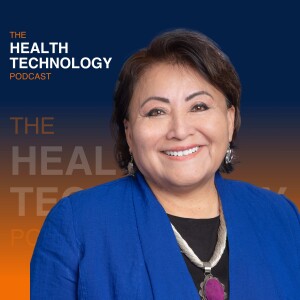
Tuesday Apr 29, 2025
Transforming Tribal Health: Roselyn Tso’s Game-Changing Vision
Tuesday Apr 29, 2025
Tuesday Apr 29, 2025
Think of a mother living in a remote village in Alaska. It’s a cold morning, temperatures well below freezing, and she needs urgent medical care for her child—but there’s no road connecting her village to any hospital. Her only hope is a plane or a boat, neither of which might arrive in time. Across America, thousands of Native Americans face similar hurdles every day—lack of access to basic healthcare, clean water, and enough nutrition. This is not a challenge of the distant past; it’s happening today, in the wealthiest country in the world.
I first met Roselyn Tso at last year’s Rosenman Symposium, where her talk left a profound impression on me. Her insights into the healthcare barriers that tribal communities face struck a deep chord, highlighting an urgent issue that many of us rarely think about.
Stepping forward to tackle these issues head-on is Roselyn, a proud Navajo Nation citizen who has dedicated her life to improving healthcare for American Indians and Alaska Natives. As Director of the Indian Health Service (IHS) from 2022 to 2025, Roselyn managed healthcare delivery to approximately 2.8 million individuals, becoming the first Navajo citizen and second woman to ever hold this role. Her career spans more than four decades, each day driven by a deep personal commitment shaped by her own upbringing on the Navajo reservation.
Roselyn believes real solutions require more than just medicine—they demand community engagement, cultural sensitivity, and innovation. Under her leadership, Indian Health Service championed initiatives addressing food insecurity, transportation challenges, and infrastructure gaps, fundamentally reshaping what healthcare means in tribal communities.
In our conversation, Roselyn shares her powerful personal journey, the realities faced by Native communities, and her visionary approach to leadership and collaboration. She offers compelling insights into the systemic changes needed to make healthcare truly equitable and effective.
Do you have thoughts on this episode or ideas for future guests? We’d love to hear from you.
Email us at hello@rosenmaninstitute.org.







